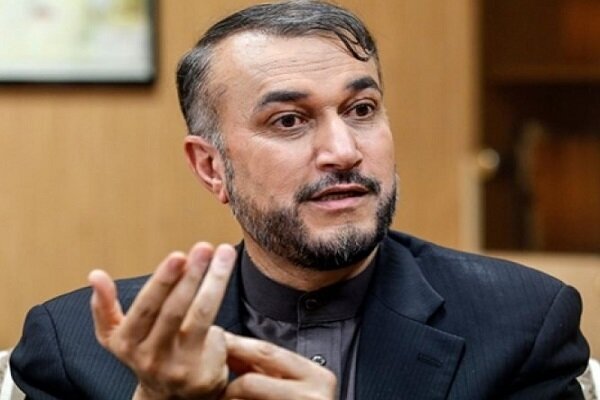Advisor says Armenia’s plan to open embassy in Tel Aviv is ‘surprising’

TEHRAN — Hossein Amir Abdollahian, a senior foreign policy advisor to the Iranian Parliament speaker, said on Sunday that the Armenian government’s decision to open embassy in Tel Aviv runs counter to the interests of the Palestinians.
Amir Abdollahian, who is also the secretary general of the permanent secretariat of the International Conference on Palestinian Intifada at the Iranian Parliament, described the Armenian government’s decision as “surprising”, saying the move would leave negative impacts on stability and security in the region.
He pointed to the position of Muslim countries on the need to realize the rights of the Palestinian people and strongly condemn any normalization of ties between Arab and non-Arab countries with the racist regime of Israel, Mehr reported.
Amir Abdollahian also referred to the steps taken by the Israeli regime in annexing the West Bank, describing them as “an aggressive and unjustified act” that could further exacerbate the tensions in the region.
He termed friendly relations between Tehran and Yerevan as an important factor in preserving stability and security in the region.
“It is hoped that the Armenian government will revise its decision and adopt necessary steps to help the oppressed Palestinian people,” he added.
In September 2019, the Armenian government approved a bill to open an embassy in Tel Aviv.
“Israel is an important player in the Middle East,” Foreign Minister Zohrab Mnatsakanyan was quoted as saying in a cabinet meeting. “The opening of the embassy will contribute to the deepening of bilateral relations and protection of Armenia’s interests in the region.”
Meanwhile, back in January, U.S. President Donald Trump announced the general provisions of a one-sided plan that heavily favored Israel.
Under the plot, the U.S. would continue to recognize Jerusalem al-Quds as Israel’s “undivided capital,” Trump said, addressing a pro-Israel audience at the White House with Israeli Prime Minister Benjamin Netanyahu by his side.
He also said the deal featured an economic portion that earmarks $50 billion in monetary allocations to Palestinians, Jordan, and Egypt, with Palestinians denouncing the move as a means of bribing them into selling their rights.
The U.S. president said the Israeli settlers, who have been housed in illegal apartment blocks since Israel’s occupation of the West Bank in 1967, would not be moved under the deal – something that amounts to annexation of the land on which the settlements have been built.
He also alleged that Israel would be freezing its settlement activities for four years “while Palestinian statehood is negotiated.”
The move was immediately denounced by the Palestinians, who took to streets in Gaza and the West Bank to protest.
Tehran also said it will continue supporting the Palestinian people’s rights and formation of a sovereign Palestinian government with East al-Quds as its capital.
MH/PA
Leave a Comment